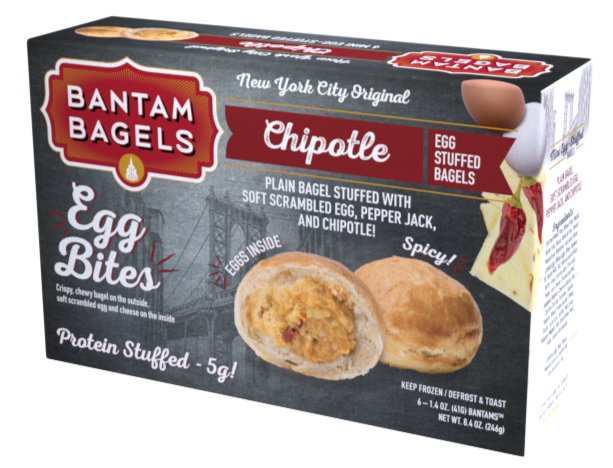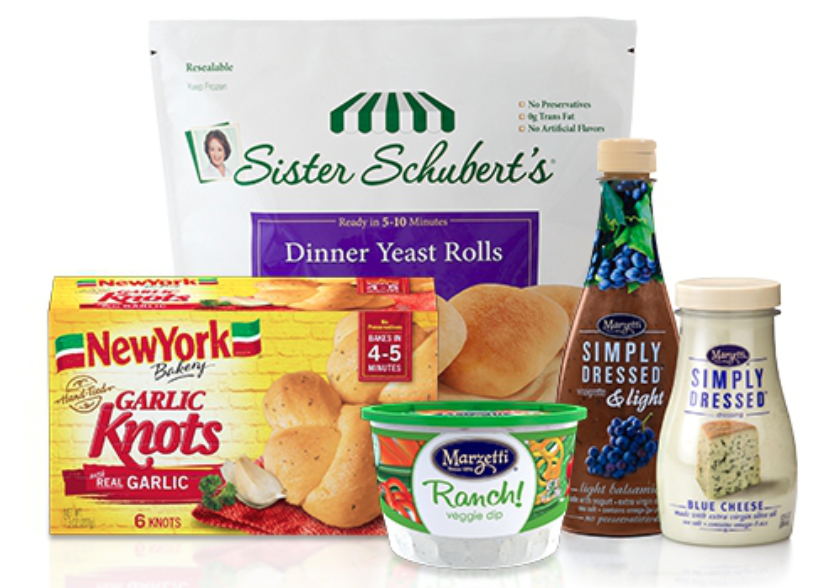WESTERVILLE, OHIO — Lancaster Colony Corp., the maker of Marzetti salad dressings, Sister Schubert's dinner rolls and Flatout flatbreads, landed a key partner in its recently announced acquisition of Bantam Bagels — Starbucks.
"Starbucks has been really happy with the product, and we can see why," said David A. Ciesinski, chief executive officer of Lancaster Colony Corp., during an Oct. 25 earnings call. "... This important brand platform allows us entry into a really strategic fast-growing food service player."
Based in New York City, Bantam Bagels, L.L.C. produces frozen mini stuffed bagels and mini stuffed pancakes for distribution to retail and food service channels. The products are offered in most Starbucks locations nationwide, according to Lancaster Colony, which is paying $34 million to buy the business.
"What excites us about this is as a platform, both the brand and the product, play right in the sweet spot of where a lot of growth is," Mr. Ciesinski said. "If you think of the grocery store ... it's a $3.5 billion category that in the last year is growing at about five points. And if you look at the last three years in compounded growth in that, it's somewhere around 4%. So it is a highly relevant, big, fast-growing category, and it's a product that we know how to make. So today, we don't have a brand platform that reaches into that segment, and the Bantam platform does exactly that.
 "And it's able to play across a range of different occasions, so it's available in cream cheese, but they also have a s.k.u., or a handful of s.k.u.s, actually, that are filled with eggs. And so it plays into the savory space as well. So, for us, it's a baked product, it's a baked product that's frozen, and it's a baked product that's frozen and served in retail. So, across all of the capabilities, it feels like it's right in our sweet spot."
"And it's able to play across a range of different occasions, so it's available in cream cheese, but they also have a s.k.u., or a handful of s.k.u.s, actually, that are filled with eggs. And so it plays into the savory space as well. So, for us, it's a baked product, it's a baked product that's frozen, and it's a baked product that's frozen and served in retail. So, across all of the capabilities, it feels like it's right in our sweet spot."
Lancaster Colony Corp. intends to operate Bantam Bagels similarly to its most recently acquired business, Angelic Bakehouse, granting the founders "a fair amount of autonomy," Mr. Ciesinski said.
"With a business this size, what we try to do is we put a sort of board around it that meets regularly," he said. "We equip them with resources in terms of quality assurance and engineering ... but at the end of the day, we're very sensitive to basically squishing them with a big company. We don't want to take away from the authenticity. We can't replicate what they're able to take to a Kroger or a Target or any one of a number of other customers when they're selling."
In the first quarter ended Sept. 30, Lancaster Colony had net income of $39,028,000, equal to $1.42 per share on the common stock, up 3.3% from $29,386,000, or $1.07, in the prior-year period. Net sales totaled $235,455,000, up 5.9% from $223,441,000.
 Retail segment operating income was $33,948,000, up 3.3% from $32,869,000 in the comparable quarter, on net sales of $162,748,000, up 0.4% from $162,144,000. Price increases taken in response to higher freight and commodity costs, continued volume gains for shelf-stable dressings and sauces, and reduced trade spending and coupon expenses contributed to the positive performance.
Retail segment operating income was $33,948,000, up 3.3% from $32,869,000 in the comparable quarter, on net sales of $162,748,000, up 0.4% from $162,144,000. Price increases taken in response to higher freight and commodity costs, continued volume gains for shelf-stable dressings and sauces, and reduced trade spending and coupon expenses contributed to the positive performance.
Food service operating income was $18,861,000, up 28% from $14,690,000, on sales of $153,906,000, up 13% from $136,772,000. The segment benefited from higher sales volumes from existing business, additional sales from new business, pricing actions taken to offset higher freight and commodity costs, and comparison to a relatively weak prior-year quarter.
"Looking ahead to fiscal second quarter, historically our biggest sales quarter of the year, we expect higher freight costs and packaging costs to persist," Mr. Ciesinski said. "Commodity inflation should turn closer to neutral as we begin to lap some of the notable increases that we experienced last year, particularly eggs."




